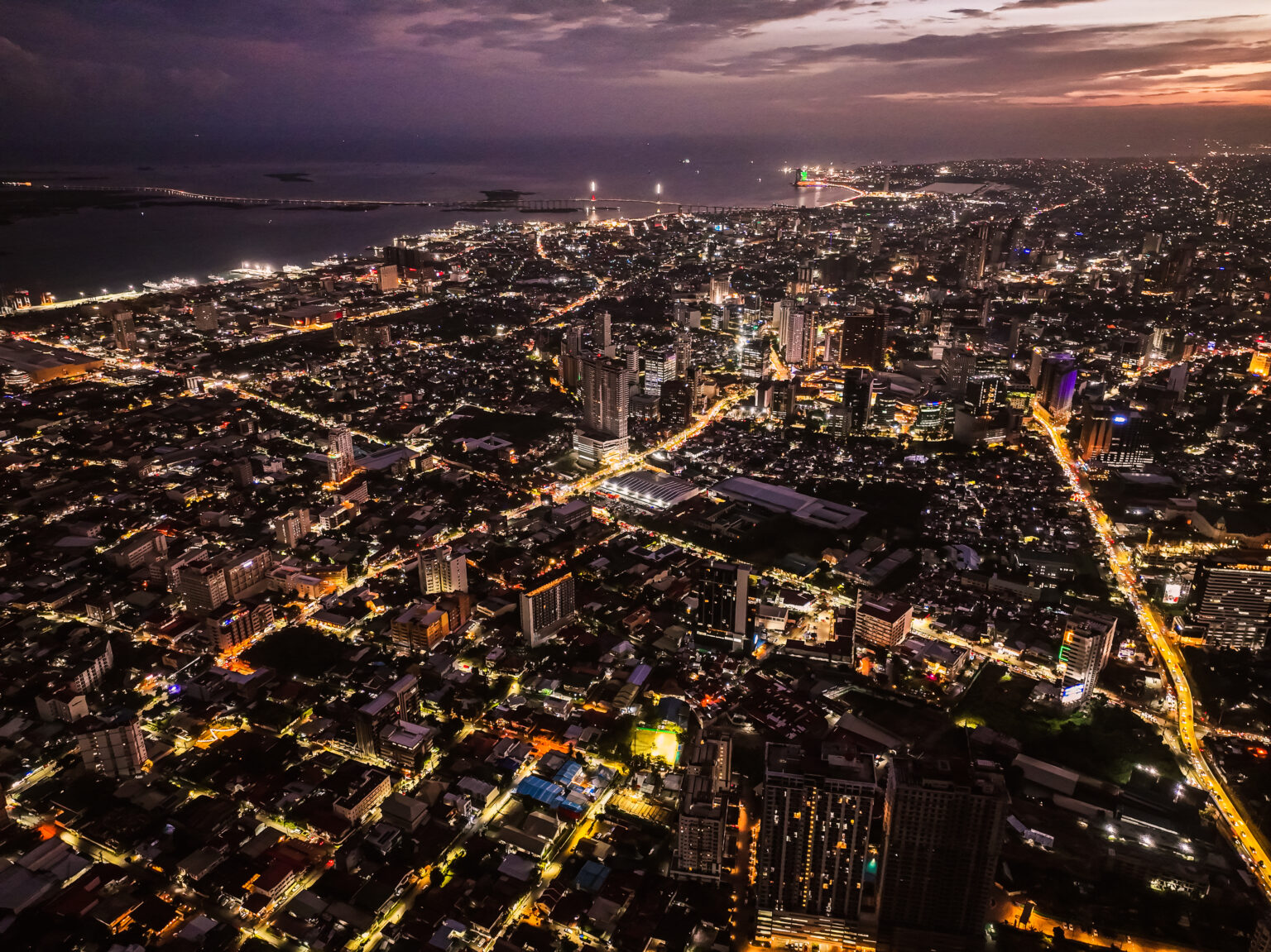Upsides
1. Booming Real Estate and Infrastructure Development
Cebu’s real estate sector is thriving, propelled by infrastructure development projects across the city. The Cebu-Cordova Link Expressway (CCLEX) has vastly improved connectivity between the islands of Cebu and Mactan, boosting business activity in previously less accessible areas. Real estate developers have capitalized on this, with numerous high-rise condominiums, shopping centers, and mixed-use developments cropping up across the metropolis.
The rise of integrated resorts, business parks, and leisure destinations signals continued investor confidence. Additionally, the construction of the new Mactan-Cebu International Airport terminal has further cemented Cebu’s position as a gateway to the Visayas and Mindanao regions, facilitating a steady influx of both tourists and business travelers. According to a report from Colliers Philippines, Cebu’s commercial real estate growth is outpacing national averages, with an expected 8% annual growth rate.
2. Rapidly Expanding IT-BPM Sector
Cebu’s IT-Business Process Management (IT-BPM) industry remains one of the most dynamic in the country, with the city emerging as a competitive hub for outsourcing. Second only to Metro Manila, Cebu’s IT-BPM sector now boasts a range of service offerings, from customer support and technical assistance to high-value functions like data analytics, artificial intelligence, and financial services.
The city’s educated workforce, proficiency in English, and adaptability to emerging tech trends have made Cebu an ideal location for outsourcing giants like Concentrix, Accenture, and Teleperformance. In 2024, the IT-BPM industry recorded significant job growth, contributing an estimated 200,000 jobs to the local economy. This sector’s growth continues to attract foreign investment, creating a robust job market and boosting spending across various local industries, including retail and hospitality.
3. Increasing Focus on Sustainability and Green Initiatives
Cebu’s business community has taken meaningful steps towards sustainability, aligning with global environmental goals. Renewable energy adoption has seen significant progress, with solar and wind projects receiving increased investment, especially in Northern Cebu. Businesses, too, are increasingly embracing eco-friendly practices, from waste reduction to green building certifications.
Local government units (LGUs) have promoted environmental sustainability by encouraging sustainable practices among businesses. Initiatives like the “Green Building Ordinance” provide incentives for companies that follow eco-friendly construction guidelines. Meanwhile, the Cebu Provincial Government’s commitment to reducing carbon emissions has spurred more companies to adopt clean energy solutions, which enhances Cebu’s appeal to environmentally conscious investors.
Downsides
1. Infrastructure Strain and Traffic Congestion
Despite significant infrastructure developments, Cebu’s rapid growth has led to challenges in transport and mobility. Traffic congestion remains a major concern, especially in highly urbanized areas like Cebu City, Mandaue, and Talisay. Roads are often overwhelmed, particularly during rush hours, and public transportation systems struggle to meet the demands of the population.
The city’s limited public transportation options have highlighted the need for a more extensive and efficient transit system. Although there are plans to establish a Bus Rapid Transit (BRT) system, the project has faced delays. For businesses, the traffic situation increases logistical costs, affects productivity, and reduces Cebu’s competitiveness compared to other Southeast Asian cities with more efficient transport systems.
2. Environmental and Climate-Related Vulnerabilities
Cebu’s location exposes it to climate risks, with the region being susceptible to typhoons and other natural disasters. The recent surge in infrastructure projects, while beneficial, has also led to environmental concerns, including deforestation and land reclamation, which can increase the risk of flooding and coastal erosion.
Furthermore, the expansion of urban areas into ecologically sensitive zones, such as mangrove forests and coral reefs, threatens biodiversity. This environmental degradation not only affects natural resources but also impacts tourism, a vital industry in Cebu. Environmentalists have called for more stringent regulations, urging businesses to adopt sustainable practices to mitigate these risks. If left unaddressed, climate-related vulnerabilities could impose significant costs on Cebu’s economy, particularly for industries dependent on natural resources and tourism.
3. Skills Mismatch and Workforce Readiness
Mr. Mark Anthony Ynoc, President of the Mandaue Chamber of Commerce, Inc., raised a significant concern in 2024 regarding the mismatch between educational outputs and industry needs. “Education must translate to employability,” Ynoc emphasized, noting that businesses often shoulder the additional burden of training new hires to meet workplace demands.
This gap creates challenges for both companies and job seekers. Despite Cebu’s reputation for a skilled and educated workforce, evolving industry requirements—particularly in technology and AI integration—mean that educational institutions must stay abreast of workplace trends.
Ynoc also urged companies to recognize the potential of artificial intelligence (AI) and prepare to integrate it into their operations. AI adoption, when done thoughtfully, could enhance productivity and streamline processes, giving Cebu businesses a competitive edge. However, this requires collaboration between educators and employers to ensure the workforce is ready for these technological shifts. Initiatives like Cebu’s industry-academe linkage programs are promising but must be scaled up to meet the growing demand for future-ready workers.
Conclusion
Cebu’s business landscape in 2024 is a blend of promising opportunities and pressing challenges. While real estate, IT-BPM, and sustainability initiatives highlight Cebu’s potential as an investment destination, infrastructure limitations, environmental concerns, and workforce readiness issues highlight areas needing strategic attention.
Cebu stands as a beacon of growth, poised to overcome its challenges through innovation, resilience, and collaboration. By fostering stronger partnerships between the government, educational institutions, and the private sector, Cebu can build a workforce equipped for the future and an economy that thrives on sustainable development. Such efforts will ensure that the Queen City of the South remains a hub of opportunity, not just for today, but for generations to come.
Sources:
– Colliers Philippines Real Estate Market Review, 2024
– Cebu Business Week Interviews, Mandaue Chamber of Commerce, Inc.
– IT & Business Process Association of the Philippines (IBPAP) 2024 Annual Report
– Cebu Provincial Government Environmental Progress Report, 2024



